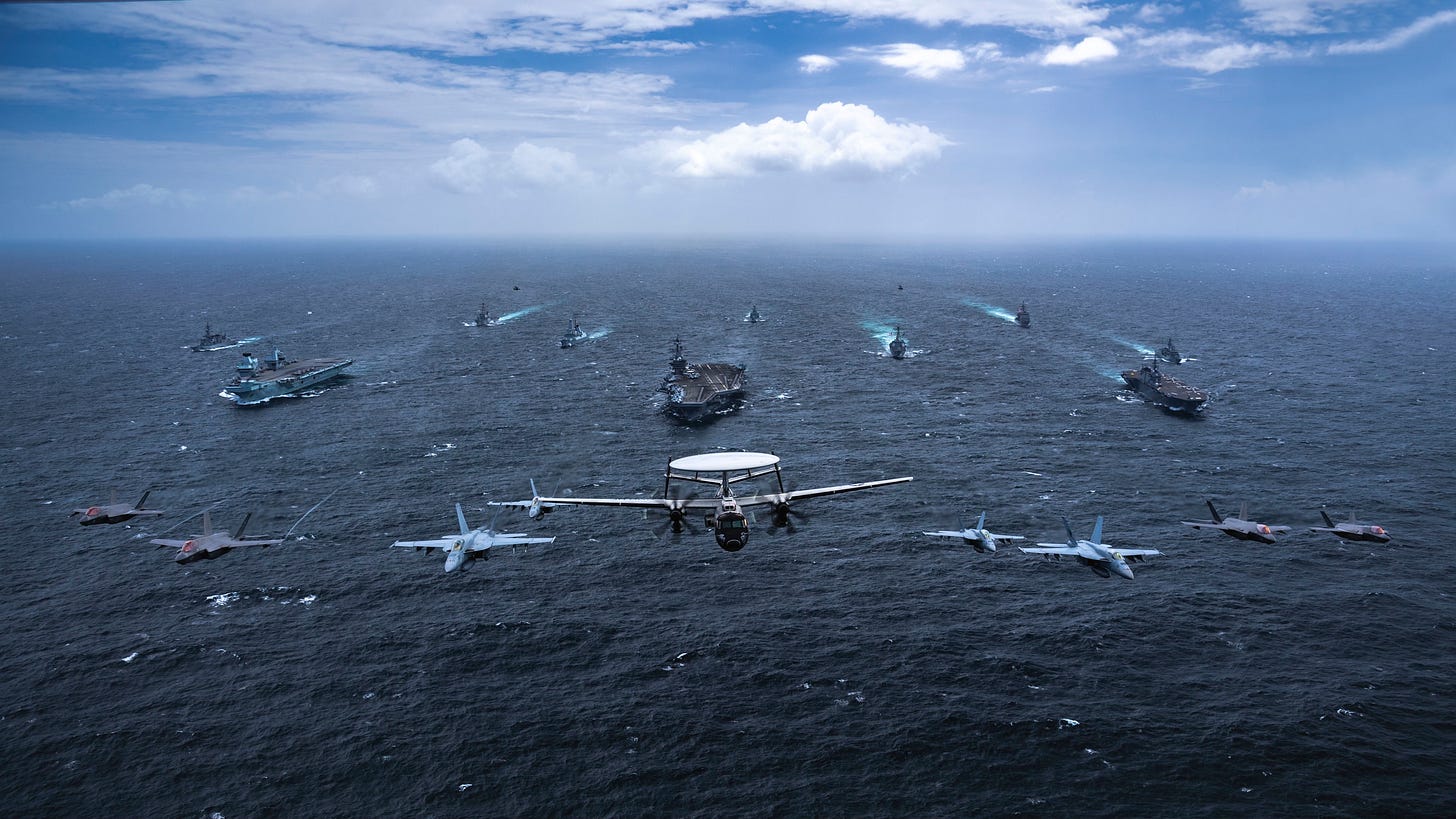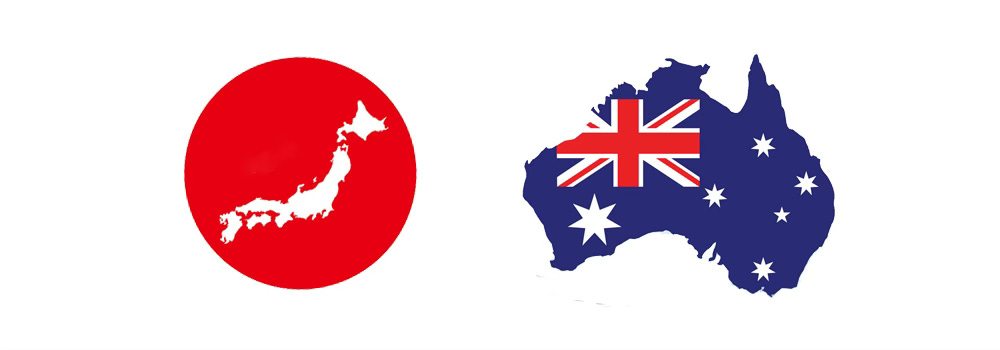Only strategic peril exists when failing to understand what it means to be an Island Nation.
Britain was once good at seapower, but out of the Islands of Britain, Australia, and Japan, who will be in the future?

Australia, and Japan and shouldn’t look to Britain today for guidance on a national strategy. As islands, maritime strategy must be at its core; so where else can they look for guidance? The past. The old saying that ‘Britannia rules the waves’, made up of those who past and present fly the White Ensign, wasn’t just rampant navalism or sentimentalism; instead, first and foremost, it represented a nation, its leaders and its people understood the realities of being an island to that of a continental land power.
The unique connection between Australia, Japan and Britain is due to one fundamental fact before any other: they are islands. Some dismiss ‘the island nation argument’ based on old myths from the era of the introduction of land-based air power. This only reflects they have a limited operational tactical mindset rather than strategic, something out of touch with the challenges for the times we live, as it was in the past. It is dangerous and naive to dismiss geography as even a rudimentary scan of history provides evidence that disagreements over resources and interference in their flow are the foundation of war and conflict. Any understanding of the maintenance of peace or victory in war and conflict requires an understanding of logistics, and more broadly, no nation can escape the fact human civilisation depends on trade and the goodwill of people to go about their business. After all, although this may be called ‘Planet Earth’, it's ‘Planet Ocean’.
Islands depend most on global trade and pathways, mostly bourne on the oceans, flowing on its surfaces and along the seabed––physically or digitally––and backed up by infrastructure in space. Britain, Australia, and Japan, not forgetting smaller islands with vast regional knowledge, have scarce resources, challenging economies, and national finances to manage, all interconnected with trade. It’s not just the building blocks of the nations but one of national survival, which is why they have no choice but a national strategy to be maritime-focused. These nations are vulnerable to other military powers and security issues which emanate from vast land continents. Continental land powers can pick their strategy and have fewer problems when sustaining their national and military power or supporting operational objectives.
Addressing the realities of being an island resulted in Britain developing a bespoke, national way of war and peace over centuries. This maritime strategy focused on how to use limited resources to defend the island and then to meet foreign policy objectives in times of war and, war-like peace such as we find ourselves today. In short, maritime strategy was the best way to use the few resources Britain had most effectively and efficiently it could. This was because Britain could be easily defeated on land against other powers, which called continents their home; the experience of seapower, the close collaboration of navy and army and the ability to influence events on land from the sea built British defence. Experience, not guesswork, assumptions, or theory, developed this strategy, and subsequently, it led to one of the world’s best fighting forces, the Royal Navy.
Britain’s experience gives Australia and Japan great confidence in embracing an authentically maritime national strategy, although either nation over the 20th century has wandered away at one point or another to only ‘rediscover’; they have no choice in this matter. They must study the experience of other island nations because the alternatives, such as the United States, as a close and vital ally they are, remain confused between naval and maritime strategy. At the same time, they culturally struggle to understand that islands have tasks at sea they must address first in times of peace or war. The temptation to seek technocratic and continental versions of naval power, which is nothing more than a means to an end and is threat-driven, is different from what islands need to execute, which is an enduring and embedded task of seapower, one beyond just warfare. Abandoning strategic sense always lurks as threats change, politics trundles on, and defence activity predominantly sits far over the horizon, particularly at sea. It’s one of the reasons the British Admiralty existed, to reject silly ideas that threw hard facts to the wind and to ensure decision-makers were educated on why they must invest in defence, particularly navies.
Yet, studying Britain’s distant past, not recent experience, is more helpful to Australia and Japan because Britain is far from a national strategy with maritime at its core. Post-1945, the UK committed an extraordinary form of treason against itself by becoming a bargain basement continental land power, which only accelerated its decline as a power and disconnected itself from allies––like Australia and Japan, who already had felt the bitter pill of abandoning a focus on the sea––and turned to those obsessed with land disputes. NATO became an excuse for Britain to stop thinking strategically and as an island. At the same time, the system of unified defence created a military mindset and political class who could no longer think strategically––let alone maritime––led by technocrats who were entirely ‘land-centric’. Little has changed; Britain’s armed forces increasingly look like an NGO to be rolled out for pomp and circumstance or to pick up the slack when civil emergencies occur while ever-increasing demands are placed on them due to an ever-gloomy world without resources to address them. Endless reviews over decades have not resolved problems and issues continually haunt British defence, many flowing from the aforementioned.
Today, the past is often viewed with scorn and suspicion. Military bureaucrats and government officials sometimes tell those who study history that they only offer a ‘perspective’ rather than facts, it is these kinds of arguments against experience that resulted in islands turning away from the sea to peril and national doom before. Still, the evidence shows that the seas, and what happens on and through them will decide the fate of these nations, just as it always has.

